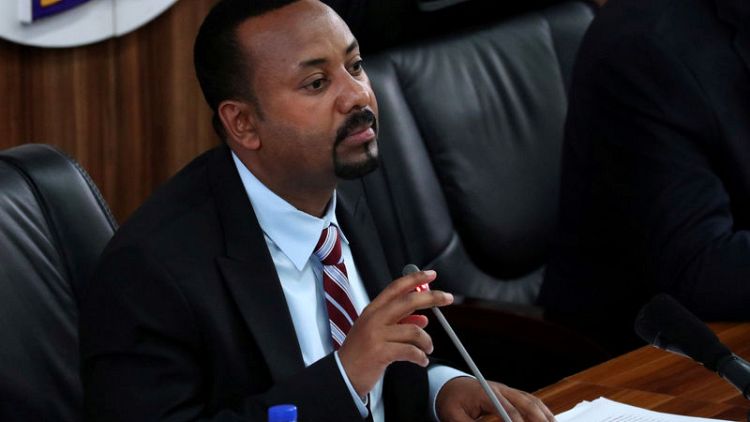ADDIS ABABA (Reuters) - Ethiopian Prime Minister Abiy Ahmed said on Sunday the death toll from protests last month had risen to 86 and urged citizens to resist forces threatening to impede the country's progress.
"We have to stop those forces who are trying pull us two steps back while we are going one step forward," Abiy told a news conference with local news organisations broadcast by state-affiliated Fana Broadcasting.
Supporters of activist Jawar Mohammed took to the streets on Oct. 23 and 24 to protest after he said police had surrounded his home in the capital Addis Ababa and tried to withdraw his government security detail.
The latest death toll, which the government late last week had put at 78, included 82 men and four women, Abiy said. Most were from the Oromo and Amhara ethnic groups and victims included both Muslims and Christians, he said.
There were also protests last month in several cities in Oromiya, Ethiopia's most populous province, underscoring the spectre of ethnic violence which the United Nations says has already left more than 2 million people internally displaced.
"I ask you to pray for all the victims of violence in that land,” Pope Francis said during his weekly Sunday address at the Vatican.
Ahead of elections in 2020, Abiy must walk a delicate line between increasing political freedoms and reigning in strongmen building ethnic powerbases by demanding more access to land, power and resources for their groups.
Since his appointment in 2018, he has initiated political reforms which have won him international praise but also lifted the lid on long-repressed tensions among the many ethnic groups in Africa's second most populous nation with a population of more than 100 million.
Abiy won the Nobel peace prize last month for his peacemaking efforts which ended two decades of hostility with longtime enemy Eritrea.
(Reporting by Giulia Paravicini; additional reporting by Phil Pullella in Vatican City; writing by George Obulutsa; editing by Jason Neely)
